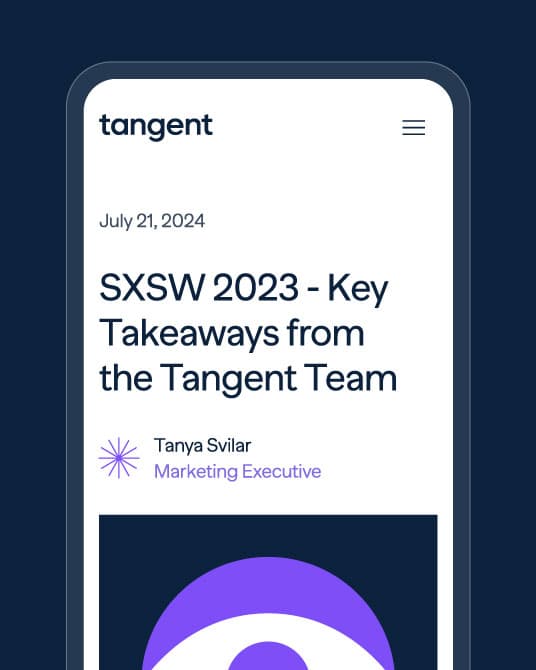
Breaking up is hard to do. But when it comes to legacy tech, there are seven big reasons why it’s worth the heartache and proven ways to make the split less painful.
Every relationship has its ups and downs. But how do you know whether it’s just a rough patch or it’s time to move on? Normally, there are a few questions we might ask ourselves to see if it is actually worth fighting for...
- How much have I invested in the relationship already?
- Do I still want to be here in 5 years? How about 10?
- What are the main weaknesses in the relationship? Can they be resolved?
- Is this relationship going to help me grow?
- Could a different, more positive relationship be better for me?
- Is there anything different I’d look for in a new partner?
Now, if you’ve come here looking for some Cosmo-style advice, I’m afraid you might be a bit disappointed. Because I’m not really talking about romantic relationships here. I’m talking about the relationship you may have with your old legacy systems.
- However, it’s really the same sort of questions you should be asking yourself:
- How much have I invested in legacy technology already?
- Do I still want to be using this system in 5 years? How about 10?
- What are the main weaknesses of the system? Can they be resolved?
- Is the system going to help the business grow, and serve our next generation of clients?
- Could a different, more cutting edge technology help transform operations?
Is there anything I’d look for in a new technology if I was starting from scratch?
So what do you think? Is it time to break up with your legacy tech?
7 reasons to 'break up' with legacy technology
Essentially, breaking up with legacy tech means moving away from outdated solutions like physical servers and other on-premises hardware and adopting more modern, cloud-based alternatives.
There are many reasons why this is worth doing, here are a few of them:
- You have security issues
Legacy technology doesn’t always get updated very often. This can lead to pretty major vulnerabilities and breaches (remember NHS Ransomware?). In contrast, the latest technology comes with built-in security features, and usually gets pretty regular security updates. Breaches can be devastating, so any company that’s experiencing security issues with their legacy systems should be thinking of breaking up with them.
- You're not seeing returns
Return on investment is important for any technology. But legacy tech systems can start to get more and more expensive to support and maintain due to their vulnerabilities and weaknesses. It then gets trickier to see the financial value of such solutions. Technology shouldn’t be a money sink. It should be supporting your processes to work more efficiently, more productively, and more profitably.
- You're finding it tricky to use the system
Having trouble figuring out how to get your system to do what you need it to? That’s a giant red flag. Of course, using software isn’t always easy. The difference today is that a lot of modern tech is open source which has great communities surrounding them where you can ask questions. This wasn’t a thing in the earlier days of the internet, and any communities that did exist are most likely long gone.
- You're not getting to market fast enough
We all know that the landscape is getting increasingly competitive. Customers are becoming more and more demanding. When using legacy systems which, let's face it, aren’t always the most efficient, you may struggle to get your digital products launched at the same rate as the competition. New tech, which allows you to essentially write code, click a button, and get something running, is super fast.
- You're not getting the job done
There’s a term called ‘technical death’ which refers to the vicious cycle of legacy tech; it shows how old systems can have a huge impact beyond their niche. Imagine you want to redesign your site. It should be simple. But if you’ve got legacy tech backing up that site, you have to ask if that technology can support such a redesign. Is it going to prevent you from completing the task that you set out to achieve?
- Your developers are sad
Working at Tangent, this is a huge red flag for me. I like to see my team happy, motivated, and excited to start their day. I'm lucky enough to get that. And the reason is that our devs love the tools they use. Sadly, it’s not the same with legacy tech. There’s not the same level of interest. There’s no passion. If your developers are bored working in Cobol, a language from this side of the ‘60s might cheer them up!
- You're finding it hard to hire top talent
If you’re having a hard enough time motivating your own developers, imagine how hard it’s going to be to attract new developers looking for a great opportunity! No ambitious developer (that I know of, anyway), wants to walk into a new job and start working with languages from the 1950s. Everyone wants the shiny, exciting new kid on the block. With modern tech, it’s an easy sell.
Handling the breakup
From my experience, it’s more traditional industries – such as aviation – that tend to run on legacy systems.
It’s difficult for them to pivot, even when they know they should. It feels like a huge undertaking. However, the last thing you want is to get stuck. You need to ensure you don’t arrive at a point where it’s impossible to develop the business further without replacing everything in one go.
It’s better to be proactive, and build out a roadmap where you replace your legacy tech slowly, bit by bit.
Over time, this will translate to real results that you’ll be able to see and measure. It’ll help with developing smoother, more efficient internal processes. It’ll help with engaging with your customers. It’ll be good from a financial standpoint, too.
No matter how complex it seems, breaking up with legacy tech will always be a step in the right direction.
No one's going to suddenly pivot back around and say, "Let's rewrite all our software in Cobol!" It's just not efficient enough. It’s not going to happen. If you want a fighting chance of keeping up with the competition, then you should be looking at ways to keep moving forwards – not looking backwards.


















